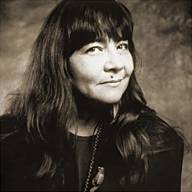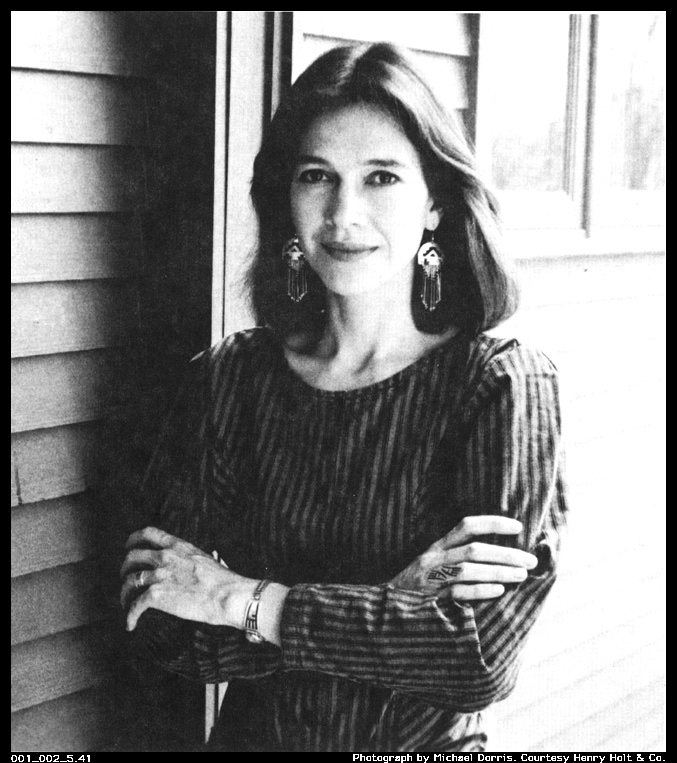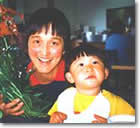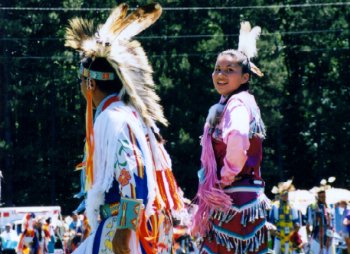
LITR 4340 American
Immigrant Literature Lecture Notes
American
Indian Minority vs. the immigrant narrative.
|
|
|
|
|
|
|
Louise Erdrich, The Round House
Assignments:
immigrant or minority > immigrant and minority
"English Lesson”
27 NYC, ethnic groups > Dutch (x-Indians)
example of New World Immigrants
"English lesson" p. 25 Diego
Midterm
Do web highlights first
Research report proposal
can repeat previous reports
can use previous reports as sources
1. In the texts today, how does American Indian culture appear as Minority rather than Immigrant? Note relations to state, government, immigration, etc.
2. Compare and contrast to immigrant stories or poems so far. How does the American Indian's position in or relation to American history or society differ from the positions and attitudes of immigrants?
3. Compare to African American literature as opposition or resistance rather than assimilation to white society? But also what differences from African American literature?
4. Based on these texts, what accommodations or acculturations do American Indians make to dominant or immigrant American culture? How do these accommodations or acculturations resemble or differ from assimilation?
5. Minorities maintain traditional cultures with extended families, while immigrants join a modern culture with nuclear families or individuals. How do these phenomena appear in today's stories?
1. In the texts today, how does American Indian culture appear as Minority rather than Immigrant? Note relations to state, government, immigration, etc.
2. Compare and contrast to immigrant stories or poems so far. How does the American Indian's position in or relation to American history or society differ from the positions and attitudes of immigrants?
English Lesson”
27 NYC, ethnic groups > Dutch (x-Indians)
Contrast "Land of the Free" p. 3
5 handsome smiling young man; across ocean another country, virtuous people
5 Those people are virtuous, they have no unnatural evil habits and they are honest. A great reward is yours if you will help me. Here are five things that men and women enjoy; take them to these people and make them as white men are. Then shall you be rich and powerful and you may become the chief of all great preachers here."
10 he said, "I think I have made an enormous mistake for I did not dream that these people would suffer so." Then did even the devil himself lament that his evil had been so great.
"American Horse"
214 those 2 white people
Issue of voluntary vs. forced participation
Immigrants choose to join up
"Gussuk"
237 khaki skirt and tasseled loafers + yellow legal tablet + organizes files + pride in her efficiency + foreign film (plain style, papers)
238 "I'm Chinese-American. My grandmother was Chinese." > first real job, as the region's new public health nurse (1/4 Chinese?)
Minorities forced
American Indians: already here, "America" rolled over
"American Horse"
210 something coming
210 large thing of metal, crushing, its path
211 [dream] wrong direction
Gussuk"
244 Robert went to Fairbanks: "Too many gussuks. I got homesick." (x-join, > resist or remain separate)
246 But she wasn't one of them; she had to look out for herself.
248 "It's the fourth of July." . . . "Yeah, yeah, yeah. Freedom and liberty and all that jazz." She hoisted the six-pack . . .
249 She'd acted recklessly, unprofessionally. She would make certain that it never happened again. (dominant culture)
3. Compare to African American literature as opposition or resistance rather than assimilation to white society? But also what differences from African American literature?
"American Horse"
212 Sioux policeman, Red Tomahawk, who killed Sitting Bull (traitor x resistance, hold-out)
4. Based on these texts, what accommodations or acculturations do American Indians make to dominant or immigrant American culture? How do these accommodations or acculturations resemble or differ from assimilation?
213 Uncle Lawrence (acculturation)
“The Man to Send Rain Clouds”
206 Army jacket
206 candles and medicine bags
207 holy water x thirsty
207 old carved door with symbols of Lamb, twin bells from King of Spain (acculturation)
208 You know I can’t do that. Should have been last rites and a funeral Mass at the very least.
208 then he remembered that this was New Mexico
208 wondering, some perverse Indian trick—to ensure a good harvest
"Gussuk"
237 he, too, had noticed their resemblance to each other (Asian)
239 dogs come inside the schoolhouse
242 "That other nurse, she didn't belong here."
242 "You look Eskimo. Now you gotta act Eskimo." (acculturation)
5. Minorities maintain traditional cultures with extended families, while immigrants join a modern culture with nuclear families or individuals. How do these phenomena appear in today's stories?
issue: traditional extended families vs. modern individualism and nuclear / broken families
immigrants: assimilation > individualism, nuclear / broken families
minorities: plenty of "broken" families, but also remnants of traditional extended families
Question: Where do extended families appear in today's stories?
“The Man to Send Rain Clouds”
206 neighbors and clanspeople (cf. neighborhood in "The Lesson")
"American Horse"
216 extended family
214 Ma frere (extended family)
217 Michif--Ma Cousin (extended family)
"Gussuk"--
251 Anna: "I'm Robert's cousin."
issue shows up mainly in privacy issues
239 children followed her . . . watched her undress
240 Mom says you eat with us
241 closeness of people in a small space
241 He casually unzipped his fly and peed into the bucket, watching them at the table the whole time, as if he didn't want to miss anything
(dominant culture as plumbing)
HOW THE WHITE RACE CAME TO AMERICA
related by So-Son-Dowa
1 where swarmed many people
1 preacher of queen's religion
2 volumes hidden in chest (literacy dangerous)
2 no right to read the book
2 a great man who had been a prophet and the son of the Great Ruler. He had been born on the earth and the white men to whom he preached killed him. Now moreover the prophet had promised to return and become the King. In three days he was to come and then in forty to start his kingdom. This did not happen as his followers had expected
3 chief preacher: seek him out
4 [dream?] morning, river, island, castle of gold
5 handsome smiling young man; across ocean another country, virtuous people
5 Those people are virtuous, they have no unnatural evil habits and they are honest. A great reward is yours if you will help me. Here are five things that men and women enjoy; take them to these people and make them as white men are. Then shall you be rich and powerful and you may become the chief of all great preachers here."
6 bundle containing the five things and made the bargain
6 castle and island vanish
7 a flask of rum, a pack of playing cards, a handful of coins, a violin and a decayed leg bone.
8 a man named Columbus and to him he confided the story. Then did Columbus secure some big canoes and raise up wings [sails]
9 the evil one
10 he said, "I think I have made an enormous mistake for I did not dream that these people would suffer so." Then did even the devil himself lament that his evil had been so great.
Thesis: Minority Literature tells a different kind of story from Immigrant Literature
Example 1 from today's readings
Issue of voluntary vs. forced participation
Immigrants choose to join up
"Gussuk"
237 khaki skirt and tasseled loafers + yellow legal tablet + organizes files + pride in her efficiency + foreign film
238 "I'm Chinese-American. My grandmother was Chinese." > first real job, as the region's new public health nurse
Minorities forced
American Indians: already here, "America" rolled over
"American Horse"
210 something coming
210 large thing of metal, crushing, its path
211 [dream] wrong direction
"The Lesson," 150-151
Upon exposure to the dominant culture's heights on 5th Avenue, the normal Immigrant or American Dream response would be to ask, How do I get a piece of this? How do I get my share of this great wealth?
The African American teacher and children (Miss Moore, Sylvia, and Sugar) see something different . . . .
Not something they want to join . . .
Rather they see something that's gone wrong, basically unfair . . . .
African Americans often cooperate with dominant culture, but have option (or necessity) of standing somewhat apart. Dominant culture refers to African America as a separate people. African America gains right to criticize or dissent.
"American Horse"
212 Sioux policeman, Red Tomahawk, who killed Sitting Bull
214 those 2 white people
"Gussuk"
244 Robert went to Fairbanks: "Too many gussuks. I got homesick."
246 But she wasn't one of them; she had to look out for herself.
248 "It's the fourth of July." . . . "Yeah, yeah, yeah. Freedom and liberty and all that jazz." She hoisted the six-pack . . .
249 She'd acted recklessly, unprofessionally. She would make certain that it never happened again.
American Indians offer yet another option--a variant on assimilation that's sometimes called "acculturation." This is a form of change that's peculiar to traditional societies like Native America.
Broad distinction:
Assimilation: person or group gives up old culture to adapt to new culture; compare "conversion," where you give up old ways for new ones
Acculturation: old culture absorbs new items or ideas, incorporates them to pre-existing culture.
Example of American Indian acculturation: horses
Assimilation is more radical, revolutionary, more rapid and unsettling change.
Acculturation is more gradual--something relatively new can look like it's been there forever.
“The Man to Send Rain Clouds”
Acculturation
206 Army jacket
206 candles and medicine bags
207 holy water x thirsty
207 old carved door with symbols of Lamb, twin bells from King of Spain
208 You know I can’t do that. Should have been last rites and a funeral Mass at the very least.
208 then he remembered that this was New Mexico
208 wondering, some perverse Indian trick—to ensure a good harvest
"Gussuk"
237 he, too, had noticed their resemblance to each other
239 dogs come inside the schoolhouse
242 "That other nurse, she didn't belong here."
242 "You look Eskimo. Now you gotta act Eskimo."
follow-up to dominant culture moment
"English Lesson"
Stephen Paczkowski, professor of music
"He was always neatly dressed in a business suit, with a shirt and tie, and carried a briefcase. His manner was reserved but friendly."
"Gussuk"
237 khaki skirt and tasseled loafers + yellow legal tablet + organizes files + pride in her efficiency + foreign film
238 "I'm Chinese-American. My grandmother was Chinese." > first real job, as the region's new public health nurse
249 She'd acted recklessly, unprofessionally. She would make certain that it never happened again.
privacy issues--dominant-culture Americans require a lot of private space
contrast traditional cultures, extended families, where people live constantly in each other's sight, touch
239 children followed her . . . watched her undress
240 Mom says you eat with us
241 closeness of people in a small space
241 He casually unzipped his fly and peed into the bucket, watching them at the table the whole time, as if he didn't want to miss anything
Notice how little attention the dominant culture draws to itself, even though it has a lot of power
plain clothing
professional behavior (i. e., not dramatic or emotional)
In contrast, minorities and other ethnic groups are often seen as "colorful," "exotic"
One reason we find it hard to talk about the dominant culture is that it doesn't draw attention to itself--but that can make it interesting, like a detective mystery . . . .
+ "plumbing" is near the top of the dominant culture's preferences
instructor's input:
rudeness but invulnerability of host at swimming pool
we admire the dad for keeping his composure and dignity
but the other man doesn't lose any status by losing his composure and dignity
dominant culture often remains separate, protected--and to some degree, immigrants don't mind!
The term “minority” is used loosely in popular speech and government. The label of a “Model Minority” is often applied to a new immigrant group that exemplifies or fulfills the ideals implicit in the immigrant narrative.
. . .
· In terms of assimilation, such groups often assimilate economically and educationally while maintaining ethnic identity in religion and ethnic customs (which may contribute to family stability and low crime rates). This resistance to assimilation imitates a leading quality of the dominant culture (obj. 4).



